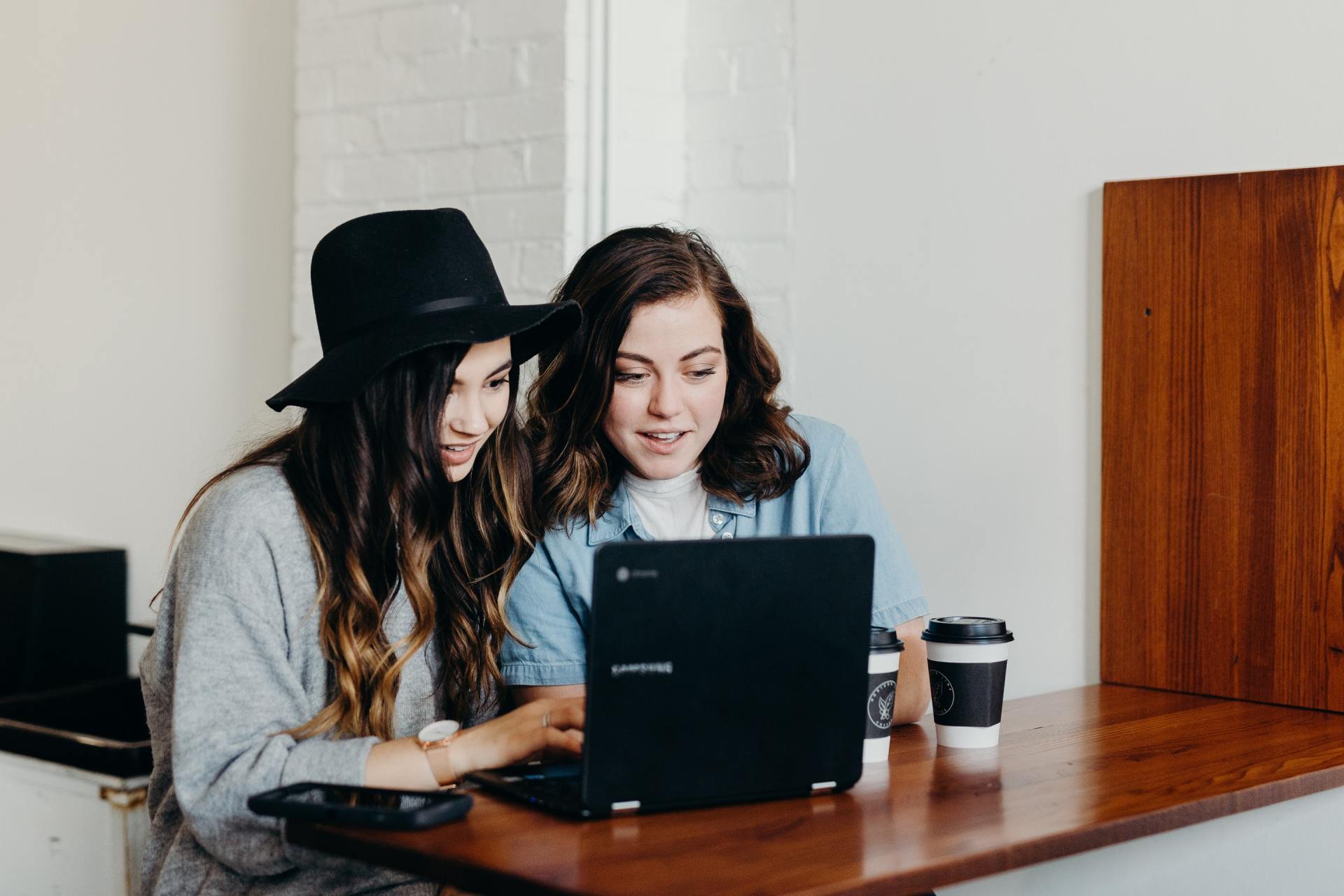NEWS

Digital Counselling Appointments for Couples & Individuals For some people digital meetings, particularly zoom, have become part of everyday life during lockdown and for others it is still a relatively new experience. Its natural to be a little bit hesitant and even more natural to have questions about having an appointment remotely. I thought about what my experiences of remote appointments was like and how I felt about them initially both as a client and a counsellor. When I first started training to be a counsellor 6 years ago, online appointments were something of a rarity. The counsellors that did offer digital appointments mainly used Skype and admittedly there was a little bit of concern around offering counselling appointments that way. Would it be secure, how could we maintain confidentiality, how would counselling work if we weren’t in the same room as our client? Not many counsellors offered online appointments and I was one of the few counsellors on my diploma course to receive my supervision via Skype. I didn’t find the quality of my supervision was diminished by having it remotely and if anything I much preferred the convenience of having my appointment in my own home, in comfortable surroundings and drinking a decent cup of tea out of my preferred mug.( It’s the little things in life that make a difference!). I think my experiences of this helped me navigate the transition into online appointments a little more easily than if I had had no prior experience of what it was like to be the client in this. This backed up by some additional training in digital counselling has helped me to continue working with clients during lockdown. If you’re thinking about having counselling via Zoom I’ve looked at some of the most common questions and concerns people have about digital appointments and written a brief guide on frequently asked questions. FAQ How do I use zoom? Zoom have produced several how to guides that explain each process in plain English and I have personally found them invaluable when I first started offering individual and couple counselling online. I will include links to the Help section of the zoom website at the end of this blog. The main question is usually do I need a Zoom account to have a Zoom appointment? Now you don’t necessarily have to have an account in theory, by clicking on an appointment link you have been emailed you will be able to access your appointment. If you choose to get a zoom account you can download from this link, https://zoom.us/signup . When booking a digital appointment, we will agree a date and time for your 50 minute appointment. Once payment has been received, I then schedule it in my zoom account and email you an invitation with a link to the meeting. On the day of the appointment just click on the link and your appointment will start. I recommend clicking the link a couple of minutes before your appointment is scheduled to begin, it gives you time to connect and to turn your video and audio on. Will it cost me more? It may depend on the counsellor you see as there is a cost to using Zoom pro. After consideration I felt it was more ethical to keep the fee the as a face to face appointment. For more information on fees please click on this link, https://www.lcrtherapy.co.uk/services#FEES . Is it secure? This is probably one of the first questions that should be asked when booking any sort of online service. Is it secure, will my data be vulnerable, can it be hacked, these are all good questions to be asking. Before moving on to this platform I made sure to do my research. Zoom have issued the statement below and with the encryption in place it does feel like one of the safest of platforms to use. “Zoom is OK to use as a tool within your practice. The data transmitted during meetings, webinars, chat sessions are encrypted and secure. Zoom is compliant with the EU-US Privacy Shield agreement. They also have a GDPR compliance statement on their website – Zoom GDPR Statement.” As a side note on one of the recent digital trainings, I attended somebody raised the issue of Alexa in the counselling space. I would advise that if you do have a home hub that you turn it off before the sessions. It may be a perfectly secure piece of technology, but they can be turned on by accident and the last thing any of us want is for your appointment to be broadcasted into a different room. Can couples have a digital appointment? Absolutely, this format works for couples and individual counselling sessions. For couples who live apart the only real difference is that there would be 3 windows on the screen instead of 2. What is Zoom fatigue? Zoom fatigue is how we describe the experience of doing too many Zoom meetings in one day and not leaving a sufficient gap between your meetings. This isn’t unique to counselling, I’m sure many of us are now familiar with the feeling of spending half the working day doing remote meetings and how we are afterwards. Perhaps you may have a headache, a little bit of irritability, feeling lethargic? All very common after spending a large amount of time on Zoom. To avoid or at the very least minimise Zoom fatigue a little bit of self care goes a long way. I always make sure that I have at least a 30 minute gap between each Zoom appointment just so I can regroup, refocus and maybe even have a quick brew. To my clients I advise doing something similar. After your appointment take some time to reflect on the session and recentre yourself in your space. Taking 10 minutes just for you before you re-enter your everyday routine and responsibilities can make all the difference. What if I lose signal? Even with the best laid plans sometimes things can go awry, and digital appointments are no different. I find it helps to have a plan of action in place before the meeting takes place and the plan can be suited around your needs. That could be carrying on the appointment over the phone if suitable or it could be to reschedule the appointment for a little later the same day. With this new way of working it is becoming clearer that when technical difficulties crop up a little bit of flexibility and forward planning can help immensely. Will my appointment be recorded? No, never. In the same way that a face to face appointment wouldn’t be videoed, your digital appointment would never be recorded either. Should I wait till I can have a face to face appointment? One of the most common misconceptions about remote counselling is that it is inferior to a face to face appointment and yes, the experience is different but that doesn’t necessarily mean it’s inferior. Different doesn’t better or worse, it’s just, well, different! It can take some getting use to, I remember initially being very aware of my face when I first started using Skype. Its natural to be distracted by seeing yourself for 50 minutes continuously at first, at some point though you stop noticing. I found that positioning the screen, so my window is less of a distraction was really helpful. Eye contact is slightly different as well, looking at the camera instead of into someone’s face takes some time to get used to. When you notice these differences it’s helpful to talk about them in the session and maybe explore how you feel about them. Also be aware that by having a digital session you are essentially inviting a counsellor into your space whereas typically you would come into a neutral space, the counselling room. Again, this can feel a little odd at first and it would be something to talk about in your session. Some counsellors offer a brief taster session of what it is like to have an appointment on zoom so you can experience it for yourself and decide if its right for you. I like to offer a quick ten to fifteen minute taster to people thinking about digital counselling to help discuss any concerns and give a very brief overview of what to expect. If you do decide to go ahead with a digital appointment pick a room or a space where you feel comfortable and you can minimise the chance of interruptions. Some people use their living rooms, some people use their car (while parked I hasten to add), it really can be anywhere where you feel ok and the appointment can’t be overheard. Some people use comfortable headphones during appointments to help if privacy could be an issue. This works for only one side of the dialogue though so I advise people to thinks about what would work best for them. After the appointment is over, I invite clients to find a way to reclaim that space for themselves. The experience of having a digital counselling appointment can work really well for some people but the reality is that digital counselling isn’t for everyone and that’s o.k . The only person who can really decide if digital counselling is right for you is you. So there is my mini guide to digital counselling and if you have any questions or would like to discuss it in a bit more details you can email me at info@lcrtherapy.co.uk and as promised here are some handy links . Links Video Tutorials https://support.zoom.us/hc/en-us/articles/206618765-Zoom-Video-Tutorials?_ga=2.7143922.1560708775.1593768469-1280732994.1584799596 Zoom FAQ https://support.zoom.us/hc/en-us/articles/206175806-Top-Questions?_ga=2.45944292.1560708775.1593768469-1280732994.1584799596#h_12512067-340a-4ca9-8d5b-f52a7ed016fb Privacy & Security https://zoom.us/docs/en-us/privacy-and-security.html

Relationship Counselling for One. “But how do you offer relationship counselling for a single person?”, that may be one of the most frequent questions I’m asked when people find out that I am a relationship counsellor. That and “so do you talk about sex all day then?”. It’s natural to be curious about how what is typically seen as a couples experience translates to an individual so I thought it might be helpful to write a quick blog exploring what individual counselling might be like and just a few of the areas it can cover. And in answer to the other question, no I don’t talk about sex all day long! My first answer to the question is that you don’t have to be single to have individual counselling, people in relationships can and do come for relationship counselling as an individual. Relationship counselling covers a very broad and diverse spectrum, it can look at previous relationships, feelings about the current relationship, grief, trauma, sexual fulfilment or concerns, anything really! Having a space just for yourself helps to clarify your own perspective and understanding. This in turn can enhance the relationship you’re in or for some people enable difficult conversations to be had. “If you are single can you still come for relationship counselling?”, my answer to that is an emphatic Yes, absolutely! People can often find their relationships follow a pattern or they may notice similarities in the partners they are with. Sometimes it’s difficult to verbalise or understand what it is that we want from a relationship, what we need from a relationship. Perhaps commitment is difficult, and you’ve noticed that as much as you would like to be close to someone, when the opportunity arises you withdraw from it or start to find fault in the relationship. Perhaps it is difficult to form a relationship or friendships and you’re not sure why. Individual relationship counselling can help explore not just aspects of relationships but help you look at any area of your life that you feel may need more attention. One thing I would add that is also impossible to ignore is the very real impact the corona virus and subsequent lockdown has had on us all. We have all seen our normality change practically overnight and have had to step out of our social circles, the opportunity to meet new people and possibly form a new relationship was lost all be it temporarily. Things that may have been part of our everyday experience such as a date night out or seeing family were no longer available to us. For those of us that have had to self-isolate in addition to this the experience can be and has been overwhelming at times. I have heard the experience described as a trauma by friends and for people already carrying some form of trauma within them this has been doubly so. Taking the time to reflect on this and acknowledge the impact is something that individual counselling can support and again this isn’t dependent on anyone’s relationship status. We can all benefit from that investment in ourselves as individuals.

Covid 19 and the lockdown of the UK has impacted on all our lives in ways we couldn’t possibly imagine all the way back in January this year. Some of us are working from home, some of us are on a furlough and scheme and all of us have experienced the fear that we or someone we loved could catch the virus. For me, I have seen therapy make the leap into digital appointments and our profession finding new and creative ways to connect with people and support them through lockdown. I have seen relationships solidify, evolve and thrive , people self isolating with their partner and rediscovering what they loved about them. I have also seen new relationships falter, stall and end as months of separation take their toll on fledgling feelings. Long term relationships have come under pressure from spending so much time together whilst dealing with the reality of a global pandemic. Illness, financial pressure and natural anxiety can open up the smallest of cracks in the strongest of relationships. Add family pressures into this and there is a whole new layer of stress to manage. It can be very easy to become overwhelmed and honestly I think we have all been at that point at least once in the recent months. With some lockdown restrictions lifting I find myself asking ‘what’s next’? How can people build on their relationships and how can people heal their relationship? How do we grieve for a relationship that may have had the potential to be significant but ended through lockdown separation? There isn’t a straightforward answer to any of this but I do know one thing. Communication is key in any form of healing, growing and learning. Talking is obviously a big part of this but not as much as listening. Listening to what’s said , what isn’t said and to me at least the most important part is listening to yourself.